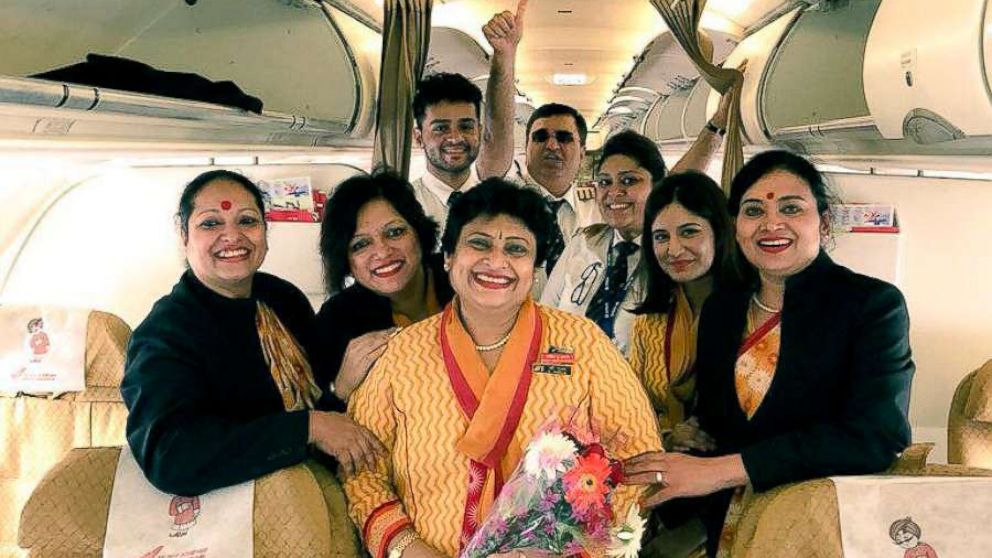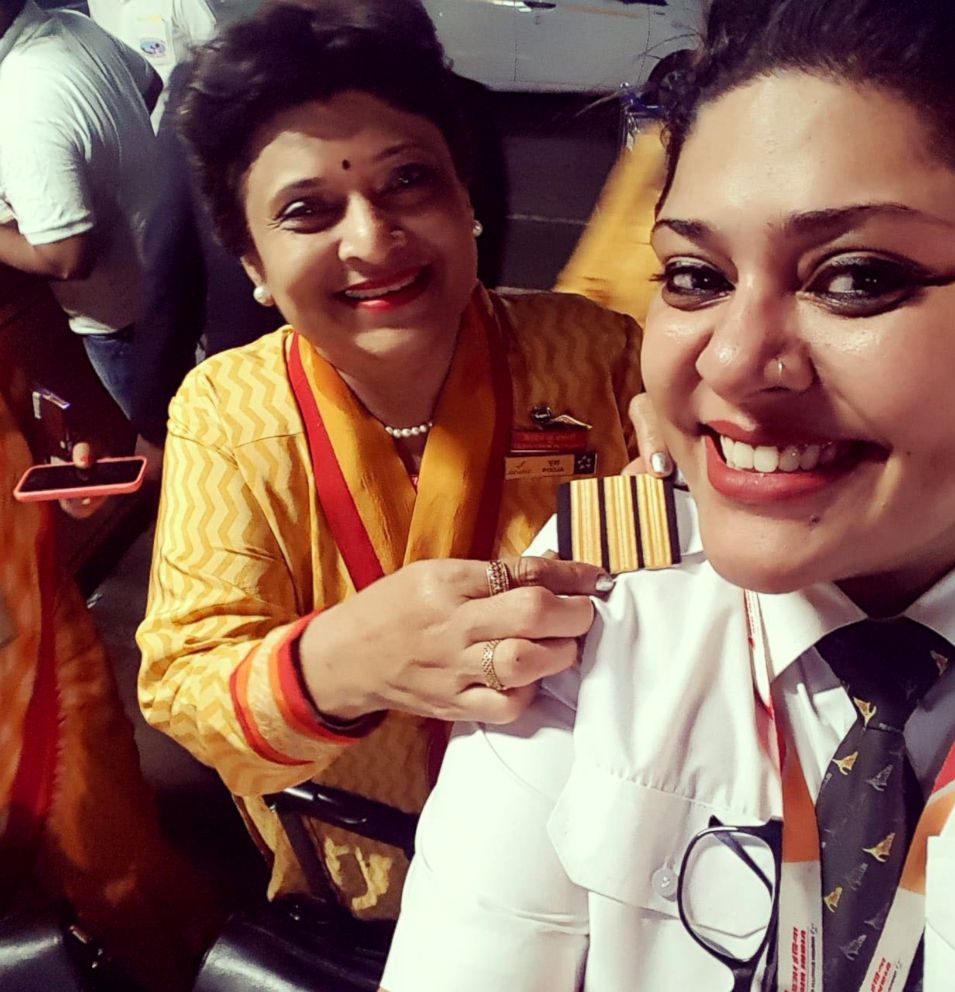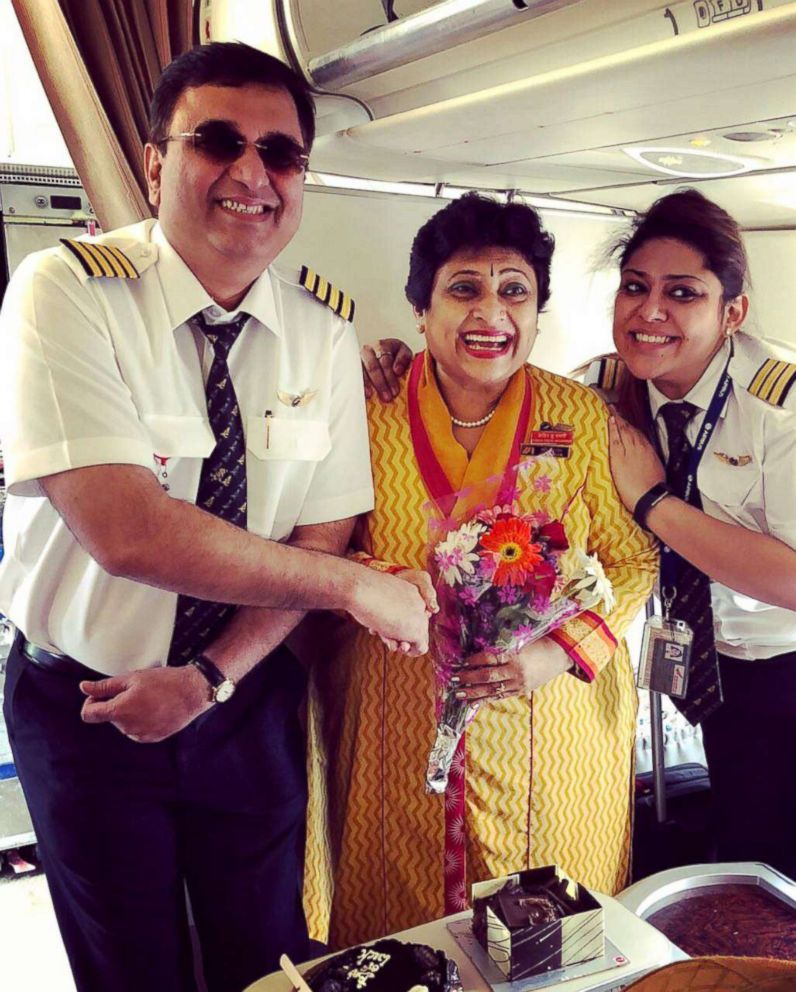Pilot daughter makes her flight attendant mom's dream come true
For Ashrrita, a pilot, no flight was more momentous than the one last week.

When Ashrrita Chinchankar’s mother, Pooja, first started working as a flight attendant for Air India, she would look at the few female pilots she saw around her and feel awe at their air of command and the respect they were accorded.
This was 1980, when women in positions of power in India were few and far between, despite a female prime minister leading the country.
"She would look at the airline captains and always think - how cool would it be to have a daughter one day who became like them," Ashrrita told ABC News.
And that is why, nearly four decades later, no flight was more momentous for a mother and daughter than the one they took from Bengaluru to Mumbai last week.
After all, it was Pooja's last flight as a flight attendant, the culmination of a 38-year long career, and at the helm of the plane was her daughter, the pilot.
"I was excited, but my mother was on top of the world," Ashrrita said.

They weren't the only ones. Not long after landing, Ashrrita posted a message about the special flight -- and her tweet went viral.
"So happy and honoured to be able to pilot the one flight that mattered. It was my mom’s dream to have me pilot her last flight as an Air Hostess with @airindiain :) As she retires after her glorious 38 years of service, I will be carrying on with her legacy?? #grateful #proud," she wrote.
Before she knew it, the tweet had garnered thousands of likes and retweets. News organizations and radio stations from across the world asked to profile the mother and daughter. And hundreds of people, from strangers on Twitter to far-off relatives in Dubai, were congratulating the two and sharing their own heartwarming stories of love and legacy.
Even India's government-run national carrier, Air India, joined in on the praise.
"Our heartfelt wishes to your mother and you for this special flight when she passes the baton on to you to have the privilege of serving our passengers with dedication. The legacy lives on," the airline tweeted.
So how was it for Ashrrita to fly her own mother?
"Awkward," she laughs. "It was strange to have to refer to my mother as 'ma’am' and her call me 'captain'. And she kept teasing me, asking me, 'So captain, how do you like your coffee?' even though she knew very well how I like my coffee."

Nevertheless, she says, it was also great fun. The significance of what they were sharing never escaped them.
Ashrrita later posted a video of her mother being applauded by passengers on the flight. In the video, the main captain of the flight (Ashrrita was the first officer) announced Pooja's achievement, and she walked down the aisle of the plane to applause and hugs from the other cabin crew.
The story of the Chinchankars is especially remarkable in a country starved of gender diversity in its workforce. The Economist recently published a damning series of reports based on International Monetary Fund statistics that showed that the participation of women in India's labor market was among the lowest in the world, and had actually fallen from 35% in 2005 to just 26% now.




